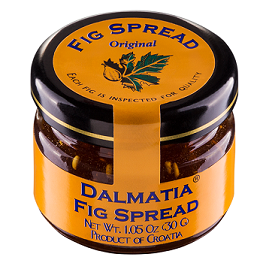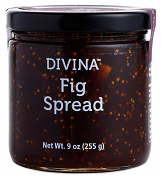The Accelerating Rate of Commerce
Classical intellectual property protection, such as trademarks, copyrights and patents often require the filing of costly applications with government offices, long delays of review and the payment of costly maintenance and renewal fees. In the era of the internet, the cycle of production and distribution of goods and services has been shortened drastically. For example, a book once printed and distributed is now published by uploading a file for use by a tablet. Zara®, the famous clothing designer can release clothes in stores within two weeks of the original design first appearing on catwalks.1 It is in this context that inventors, designers and authors must protect against fast acting and often foreign actors.
The Best Kept IP Secret: Trade Secrets
The International Agreement on Trade-Related Aspects of Intellectual Property Rights (TRIPS Agreement) offers great protection to trade secrets.2 As the United States, all TRIPPS signatory countries around the world automatically must give protection to trade secrets without administrative red tape. Trade secrets do not expire and are automatically protected as long as they meet the definition. The United States once gave protection via individual state laws,3 but today offer protection on a Federal level.4
The Very Expansive Definition of Trade Secret
Business owners generally marvel at the broad and expansive definition given by the law to trade secrets. Reading the full definition found below will bring a smile to most:
“The term “trade secret” means all forms and types of financial, business, scientific, technical, economic, or engineering information, including patterns, plans, compilations, program devices, formulas, designs, prototypes, methods, techniques, processes, procedures, programs, or codes, whether tangible or intangible, and whether or how stored, compiled, or memorialized physically, electronically, graphically, photographically, or in writing if— (A) the owner thereof has taken reasonable measures to keep such information secret; and (B) the information derives independent economic value, actual or potential, from not being generally known to, and not being readily ascertainable through proper means by, another person who can obtain economic value from the disclosure or use of the information.”5
This definition aligns in most aspects with the International Agreement of TRIPPS. For example, family recipes, client lists and financial reports may be given protection under Trade Secret Law if some internal steps are taken.


Dalmatia Fig Spread v. Divina Fig Spread
The Dalmatia® Fig Spread Trade Secret Recipe
In 1999, Dalmatia Import Group, Inc. launched the Dalmatia® fig spread in the United States. The recipe was “protected” under trade secrets. Dalmatia engaged a New York company, FoodMatch, Inc., as an exclusive distributor in the United States, which began using a Pennsylvania company, Lancaster Fine Foods, to manufacture, distribute and sell Dalmatia®. In 2015, unhappy with the quality of the product, Dalmatia changed manufacturers and distributors. Shortly thereafter, the local manufacturer released Divina®, a fig spread.
The battle included violations of State Trade Secret Law, the new Federal Trade Secret Law, trademark infringement and unfair competition. After an 18-day trial and several days of deliberations, the jury returned a verdict for more than $2,500,000 in damages including $500,000 attributed to the trade secret misappropriation claim.8 While appeals remain ongoing, this ruling is illustrative of how recipes, even after a decade in the hands of local manufacturers, distributors and importers may be protected under the law.
1www.tradegecko.com/blog/zara-supply-chain-its-secret-to-retail-success
2TRIPPS Article 39(2): “Natural and legal persons shall have the possibility of preventing information lawfully within their control from being disclosed to, acquired by, or used by others without their consent in a manner contrary to honest commercial practices so long as such information: (a) is secret in the sense that it is not, as a body or in the precise configuration and assembly of its components, generally known among or readily accessible to persons within the circles that normally deal with the kind of information in question; (b) has commercial value because it is secret; and (c) has been subject to reasonable steps under the circumstances, by the person lawfully in control of the information, to keep it secret.”
3765 ILCS 1065 – Illinois Uniform Trade Secret Act.
418 U.S.C. Chapter 90 - §§ 1831–1839.
518 U.S.C. § 1839(3).
6https://www.impressionsinflight.com/dalmatia-fig-spread-1-05-oz-jars-pack-of-6.html
7https://thrivemarket.com/p/divina-fig-spread
8Dalmatia Import Group, Inc. v. FoodMatch, Inc. et al., 16-cv-02767 (E.D. Pa. Feb. 24, 2017).


 />i
/>i
